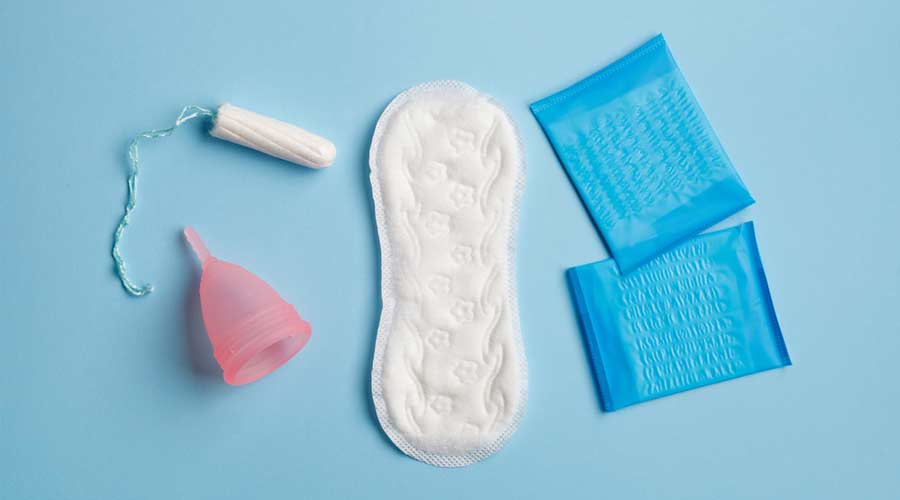
My 16-year-old daughter inspired this column when I noticed that her backpack was fully loaded and looked almost ready to burst open at the seams. This would be noticeable on anyone; on her, though, it was almost comical due to her short stature and slight frame. I asked why she was so overloaded with books and not using her locker at school. The response I received was illuminating.
"These aren't books," she explained. "I carry period products with me — tampons, pads and two bottles of Midol — to hand out to anyone who asks because the school's machines charge for products, and most of them are old, broken or empty." She continued, "All the girls know that I always carry supplies and will give them out for no charge, no questions asked. All they have to do is come find me. Many girls start their first cycle during school, which can be stressful, and I make sure they know I'm here. Some teachers will hit me up, too."
What followed from there was an enlightening conversation, daughter-to-father, about the concept of period poverty, period stigma, and things that we can do to play a role in its reversal.
Overcoming period poverty requires greater access to menstrual hygiene information, products and waste management. While nobody should presume that a 500-word column can cure a global issue overnight, it is undoubtedly an issue in which we as a profession and an industry-at-large can positively impact public spaces.
According to industry data, consumable supply budgets average only roughly 5 percent of the overall custodial operations budget. That said, just about every custodial operation that I visit has toilet paper, hand towels, hand soaps and menstrual hygiene products on hand. I also know that missing paper products in restrooms is the most frequent complaint for cleaning operations. The biggest obstacle that I see most operations need help with isn't just lack of staffing or products to restock; it is an issue of building logistics.
Most cleaning operations can guarantee a deep cleaning of restrooms every shift. Day porter's daily duties usually include policing paper, soap, and menstrual products at least once per shift, if not multiple times. However, these frontline workers also take care of spills, complaints and other intangibles.
With many operations still relying on one central supply point in their buildings, restocking can be difficult, especially on a heavy complaint day. The further the hygiene cart has to travel, the heavier it is, and the less likely it is to make its destination.
It's not a groundbreaking observation to note that most buildings we occupy weren't designed to be cleaned. In fact, it wasn't until very recently that custodial operations were even considered when drawing up plans for new building designs. But one of the most helpful things that came from involving cleaning professionals is a closet to hold stock located between each set of restrooms on every floor. This eliminates the need for overloading carts with heavy supplies that travel large distances.
Older buildings can overcome this with a simple locking cabinet strategically placed and maintained near restrooms. There may be more elegant solutions, but it is indeed functional.
Several advocacy groups have emerged as thought leaders in this space; my daughter pointed me toward period.org. It’s a non-profit and a great place to start, with a wealth of resources, including an extensive network of service partners that provide education and product.
A few companies have also emerged into the cleaning space with new, functional dispensers that are easy to install, replace old hardware, and provide period supplies for free. It's time we as cleaning operations start brainstorming for the strategic removal of old, coin-operated, broken units — and above all, these products should be free for all occupants. It is in the budget, after all.
Restrooms must work for all of us, or they work for none.
Ben Walker is COO at ManageMen, Inc., a leading cleaning industry consultancy specializing in training, transitions, auditing and educational materials. He can be reached at ben@managemen.com.

 The Down and Dirty on Cleaning in Virus Season
The Down and Dirty on Cleaning in Virus Season How Surfactant Use is Expanding in Commercial Cleaning
How Surfactant Use is Expanding in Commercial Cleaning Maximize Your Margins: Learn How to Automate Pricing and Track Rebates
Maximize Your Margins: Learn How to Automate Pricing and Track Rebates